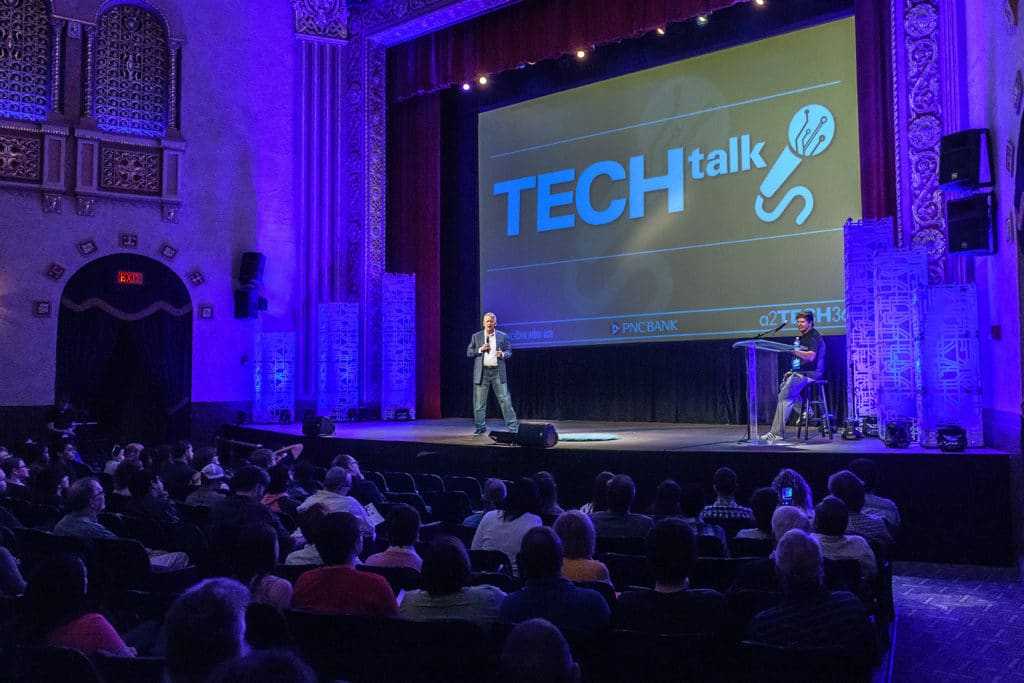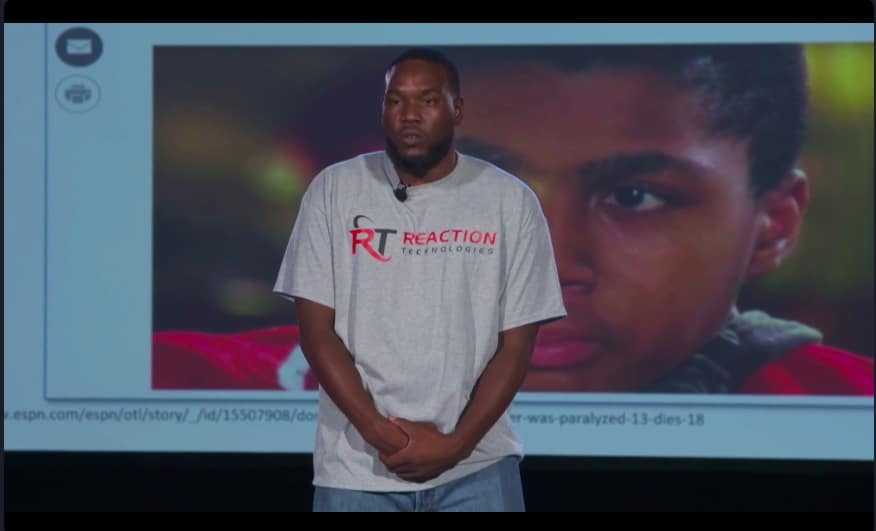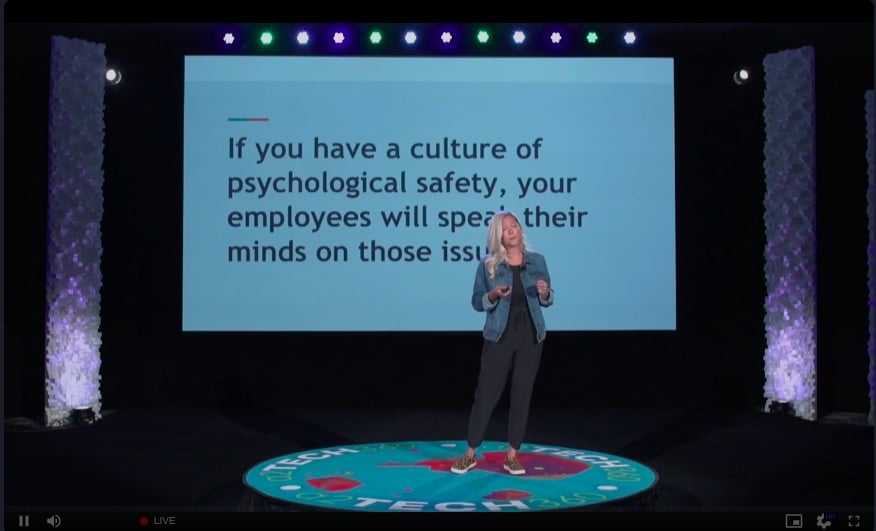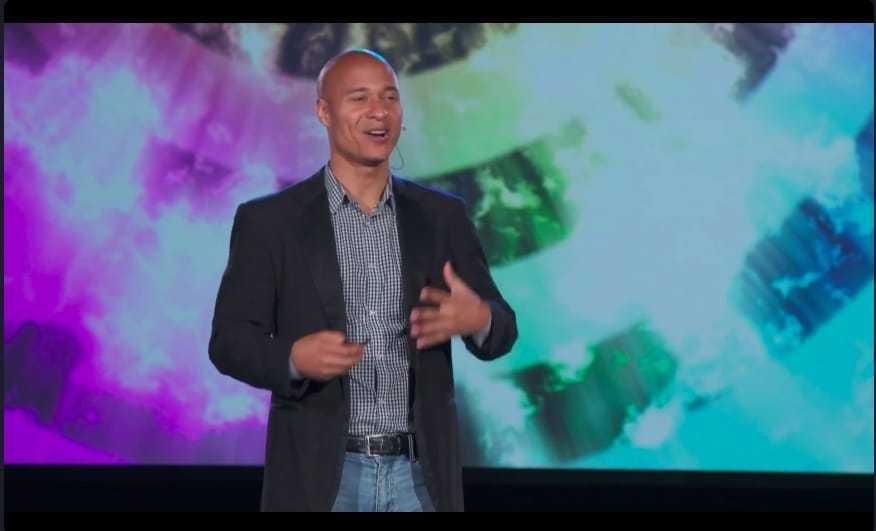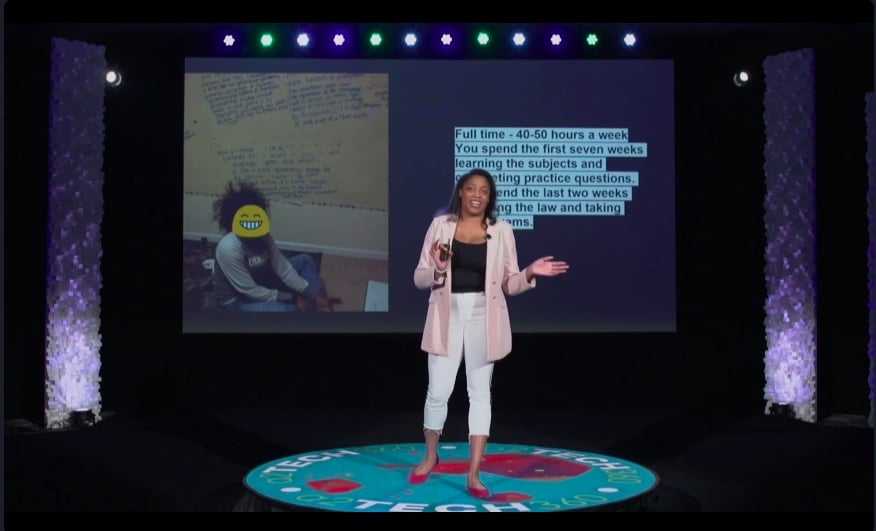leadership, mobility tech, networking, software, tech events
TechTalk 2020: Lessons From Entrepreneurship In Changing Times
By Laura Cowan
Laura K. Cowan is a tech editor and journalist whose work has focused on promoting sustainability initiatives for automotive, green tech, and conscious living media outlets.
Susan Wagner of KLA Corporation spoke up front at this year's TechTalk out of Ann Arbor on the importance of diversity and inclusion. Inclusion gives companies the diversity of thought and experience to be as creative and innovative as possible. "We should work together to life one another up. It does not mean that just because others succeed we will fail... all boats rise together," she said. "KLA is a global company. COVID's impact can vary," Wagner said. "The semiconductor industry is playing a crucial role to enable work from home. Many things are changing, some for good," she said. "Electronics are more important than ever to keep us connected." Speakers at this year's TechTalk went on to talk about other aspects of diversity and inclusion, lessons learned managing businesses through the pandemic, and what they've learned from being in the tech space during rapidly changing times.
Making Cities More Livable In Changing Times
Director of Public Policy and Advocacy at May Mobility Tara Lanigan presented on shared mobility in open streets during and after a pandemic. "I've loved cities and public transportation my whole life, and I've been lucky enough to live in great cities," she said, including L.A., Detroit, London, and New York. "I loved taking the Tube in London. I could read during my commute, it was clean," she said of her passion for combined mobility commuting options. In Detroit she rode e-scooters, walked, and biked, in Ann Arbor she walks and drives. May Mobility aims to create a safe, fun commuting option with autonomous buses. It's important that shared mobility shuttles offer the same protections now common in public buildings to protect users, such as UVC lighting, foggers, panels to protect passengers from droplet spray, which May implemented before relaunching their self-driving shuttles in places like Grand Rapids.
"Many cities including Ann Arbor have closed down busier streets to allow restaurants to expand for outdoor dining, and to allow pedestrians to feel safe moving around downtown," Lanigan said of recent pandemic measures to make downtowns more livable during social distancing. Many of these measures to close streets during public art fairs and the like are temporary, but Lanigan anticipates that many cities may revert back to making cities livable for people in this way in the longterm. "Cities should be built around people, not cars," she said.
"It's not just a mobility problem, it's questions that can be asked in all sectors," Lanigan said. "What existing challenges does the pandemic magnify?... How can we work together to create a new reality?" From public health crises to accessibility, May Mobility is working along with other mobility stakeholders to make cities more livable and accessible, including through the new autonomous corridor to be opened between Detroit and Ann Arbor.
Hein Lam of Huck Finch branding talked lessons he has learned from entrepreneurs on his podcast On Brand.
Lessons Learned from Entrepreneurs & Employees
Hien Lam, co-owner of branding firm Huck Finch, discussed branding and lessons he's learned from entrepreneurs from guests on his podcast On Brand. "We're all going to die someday," Lam said. "By my count we all have about 26,000 days, and we're most of us about halfway through that, so don't waste a day." If you have the itch to become an entrepreneur, today's the day to get started, Lam said.
Lessons Lam learned on his podcast from tech leaders: From Jason Fried of 37signals came a focus on profitability to keep a business in business. "Build a runway, calculate your monthly expenses and see how you can create a funnel to succeed," Lam said. Advice from Eli Altman of A Hundred Monkeys: "We don't want to be The Cheesecake Factory." Meaning, specialize in being good at a few things rather than meh at all of them. And from David Klingenberger of The Brinery: "We need to invest in social capital." While it sounds romantic to hear stories about entrepreneurs pulling themselves up by their bootstraps, Lam said, the truth is it takes a village. Give more than you take. "How can you package that into 5-minute favors that would be highly impactful for those around you?"
Brandon Martin of Reaction Technologies said he founded a company to help create training devices for athletes to make football and other sports safer, after seeing a story on ESPN about a high school athlete whose career hopes were crushed after a spinal injury. He came from Austin, Texas, to be a part of Ann Arbor SPARK's incubator program, to create products that would make the game of football safer for athletes. "Our goal is truly to make the game of football safer and to leave a legacy. Participation in football has declined over the past few years because of concerns regarding safety," Martin said. Martin created technologies to help athletes train in a safer way, and he has benefited from the support of the business community in bringing a passion for athlete safety to life not only for football but for other sports as well.
Jasmine Burns, who is head of people at security startup Censys shared lessons learned from mistakes made over diversity and inclusion over the past few months she said she learned from employees.
Jasmine Burns of Censys has spent several difficult months wrestling with how to handle company stances and programs on diversity and inclusion.
- What Role An Organization Should Play In Societal Issues Is Still Up For Debate. Burns said that it's not that important that this is still an unanswered question from startups to corporations, but it's important to take a stance and advertise it, both internally and externally. You have to create a psychologically safe space where employees feel they can show up and voice their opinions. "Your leaders have to show up as genuine listeners," she said.
- Just Because Employees Aren't Experts on Diversity & Inclusion, Doesn't Mean They Don't Have Good Ideas. If you have employees that are passionate about their ideas, they're probably going to champion it. In small teams, having someone behind that effort when you have limited time is an amazing thing.
- Employees Are On a Different Part of Their Journey Learning About Diversity and Inclusion. Just because they're executives doesn't mean they have all the answers. D&I is showing up more and more, employees show up from all kinds of backgrounds, and they might not be on the same page at first or ever. Don't bucket your employees or executives into certain perspectives.
- Showing Up Hollow Has a Negative Impact. Blackout Tuesday was an example of companies expressing solidarity for diversity and inclusion but not showing up. Showing up and not being a genuine listener or showing up hollow could be worse than not showing up at all.
- What's Right For Your Organization Might Not Be Right For Another. Think about your own strategy and how that aligns with your own company's goals. Creating coding bootcamps might be the best way a software company can show up to mentor youth in the community from underprivileged backgrounds, while another organization might have something else to offer.
Origins Stories from Startups
Dr. Robert Alexander, CEO and co-founder of Aura Lab, creates healing technologies. "Devices and technology are extensions of ourselves," he said of the impact technology has on our capabilities and connection.
Dr. Robert Alexander of Aura Lab, creates technology to help people with relaxation, meditation, and healing.
Alexander told a story of how he used his phone to collect stories from family members after his mother died. "I felt so wrapped up in their love," he said of family visiting him from across the world, "and I didn't want that to end. I took the sound recordings and photos of their stories about my mother," he said, and listened to them while he grieved. "Then I moved all the way to the other side of the planet to teach at Hong Kong University, so I didn't have that environment that was naturally supportive that I had for many years.... I realized there were probably words that could help me. I created a set of guided meditations," using all the words that he felt would uplift him. The meditations reminded him of kindness in the faces he saw on the street, and helped him use tech to engage with connection. "We created this tech Breathscape takes the breath and turns it into music in real-time, so I can place this device against my body, and it generates visuals and music in real-time. I recorded the voice of my aunt, playing back these words that touch my heart," Alexander said, "and throughout all of it, I've had this technology to bring me back to that place of deep relaxation. Think about your relationship with your tech. Does it feel like your tech is supporting, nurturing and nourishing you?" Alexander said it has been amazing to have tech he created to help himself resonate with others, helping them with anxiety and more.
QuantumSignal's Mitch Rohde works on engineering algorithms for self-driving cars, now acquired by Ford Autonomous Vehicles. "There are two key factors to being a great engineer. The first is the desire to make things better. The second is a love of pattern recognition," Rohde said of his road to working in autonomous AI. "Pattern recognition has run through my entire life. My experience with pattern recognition is very broad. I started in high school working on neural coding in crayfish. I morphed that project in undergrad and graduate school into building direct brain interfaces," he explained, before moving on into surveillance feeds and then autonomous technologies. "You hear a lot about AI, but we used to call it signal processing. Data is data, and pattern recognition is the core." Why talk about pattern recognition? "If you can recognize the pattern, you can understand a system.... Pattern recognition allows you to build solutions to real problems." Rohde says that engineers study patterns to see where the trends are so they can focus their technology development efforts. "If you want to optimize your chances of making a big impact, it helps you use information available to you to optimize your chances."
Questions Rohde is asking himself lately:
- What are the trends in autonomous technology and in adoption?
- What are the trends and patterns in AI that really make a difference?
- What comes next in entertainment and technology and how that helps us interact with our dreams?
"Chance favors the prepared mind," Rohde said. "Pattern recognition is a muscle, that empowers you to build a better world and technologies that make a difference."
Rachel Cash, founder and CEO of data privacy company Elroi, talks about her computer crashing during taking the BAR Exam in 2017, the same year major data breaches rocked the business world.
Rachel Cash, founder and CEO of Elroi, who works on enterprise solutions for data privacy and compliance. Her talk "Why You Must Control Your Data To Control Your World" focused on her road as a non-tech founder from law school to entrepreneurship in data and privacy, and the changes in privacy laws including GDPR and CCPA, and multiple data breaches that have changed the legal and business fields.
Cash said that she experienced a computer crash while taking the BAR Exam after law school in 2017, the same year major data breaches changed the business world, privacy laws, and created an entire new field of law regarding privacy and data. Her story that tracked along with the development of GDPR and CCPA, was one of troubling times and inadequate technologies providing opportunities for an entrepreneur to make the world of data and privacy a better place.
What Comes Next In Tech In Such Quickly Changing Times?
Early this year, many interviews on Cronicle focused on the challenges that COVID-19 dumped onto the world in many different areas, the pace was frantic, or businesses even paused some operations to regroup on how to pilot through such quickly changing times. We are quite encouraged, and hope you are as well, to see so many companies rise to the challenge, work toward making their communities more inclusive, accessible, or safe for more people, and that the tech community in Ann Arbor and beyond is creating new solutions for a new landscape. Stay tuned for more behind the scenes interviews with companies highlighted from this year's a2tech360 tech week in Ann Arbor, including biotech companies out of Tech on the Edge and more funding news. Congratulations on navigating an extremely challenging year, Ann Arbor tech. You've given us a lot to think about and a lot to look forward to.
a2tech360, ann arbor tech week 2020, auralab, brandon martin, censys, elroi, hien lam, huck finch, jasmine burns, john mclaughlin, kla corporation, may mobility, mitchell rohde, quantum signal ai, rachel cash, reaction technologies, robert alexander, susan wagner, tara lanigan, techtalk 2020


